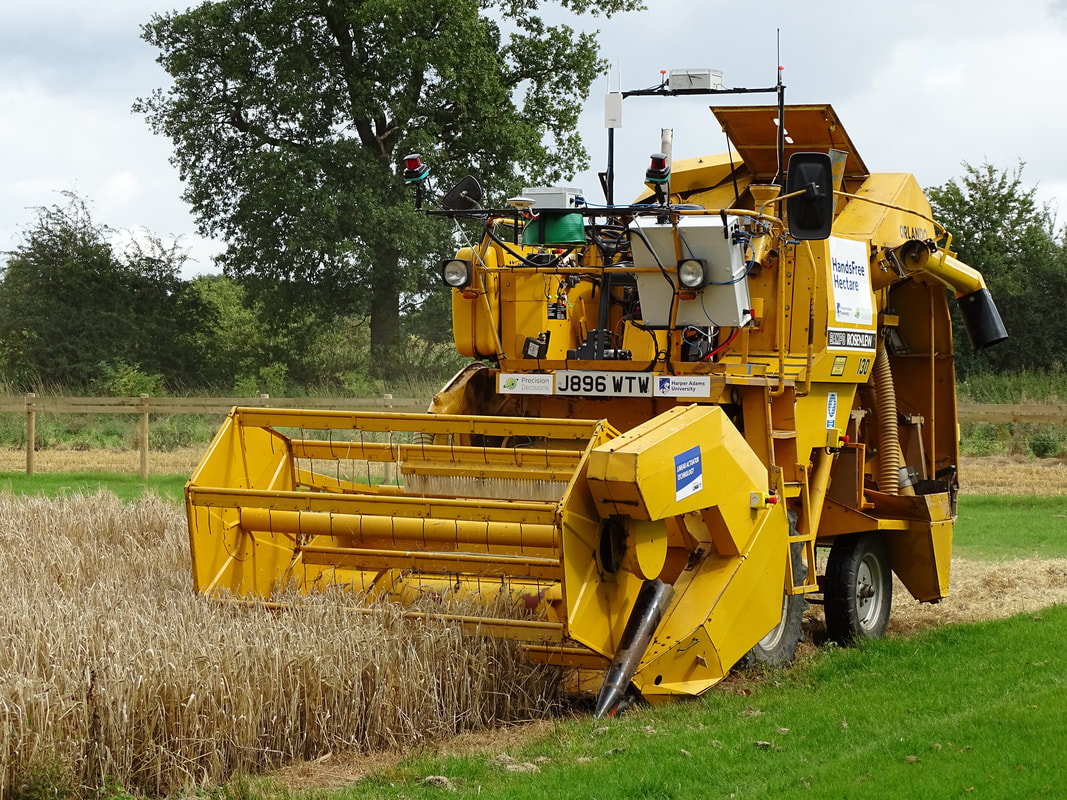This Farm Has No Farmers

Credit to Author: Claire Downs| Date: Tue, 03 Oct 2017 14:00:00 +0000
Just after sunset on September 6, 2017, celebrations erupted on a farm in the quiet county of Shropshire, England. After a year of hard labor and careful planning, researchers achieved the previously impossible: the world’s first fully automated harvest—from barren land to flourishing crops—had been successfully completed. The “Hands Free Hectare” used nothing but robots, and was yet another step forward in revolutionizing how we feed the world.
After receiving £200,000 in government funding in October 2016, the team from Harper Adams University set to work modifying a tractor and twenty-five year old combine with cameras, lasers, and gps systems. Drones aided in monitoring the field, while a robot “scout” scooped up soil samples for inspection.
Previous studies on driverless tractors have used large machines to get the job done. But the Harper Adams team used another tactic: Their small tractor and combine were able to make more precise movements, limit damage to soil for future harvests, and increase efficiency.
The harvest yielded 4.9 tons of barley, which Kit Franklin, the project’s leader told The Times is “the most expensive hectare of barley ever.” The plan, of course, is to eventually bring the price of autonomous farming down via economies of scale.
The Hands Free Hectare farm joins a host of other companies and organizations pushing farming further toward automation. Last month, tractor manufacturer John Deere purchased the AI company Blue River Technology with the goal of using machine vision tools to automate weed-killing. Wall-Ye, a French grape-picking robot, has enchanted Burgundy’s wine region for years. Kyoto-based robo lettuce farm, Spread hopes to produce 30,000 heads of lettuce a day and decrease energy costs by one third. Meanwhile, drones are changing the way that farmers monitor their crops all around the world.
Robots are also the key to aiding a dwindling and aging farming workforce. As labor shortages in states like California, raise concerns about the future of farming, agriculture is starting to lean more on robots. “It’s not about putting people out of jobs; instead changing the job they do,” Franklin said in a statement. “The tractor driver won’t be physically in the tractor driving up and down a field. Instead, they will be a fleet manager and agricultural analyst, looking after a number of farming robots and meticulously monitoring the development of their crops.”
Automation isn’t all about replacing jobs that humans do; often it’s about doing jobs that humans can’t do. For many ag-tech companies, that means data collection and deep learning. The startup Descartes Labs, for instance, uses satellite imaging data to predict crop yields—a task that could be a valuable resource for governments wanting to predict food shortages or the impacts of climate change.
The Hands Free Hectare farmers, meanwhile, plan to use their newly reaped barley to crack open a couple cold ones: The farm hopes to brew some delicious beer with their robotically harvested key ingredient.
Dear Future is a partnership with CNET that will explore the people, companies, and communities that are ushering in the future we were all promised. Follow along here .